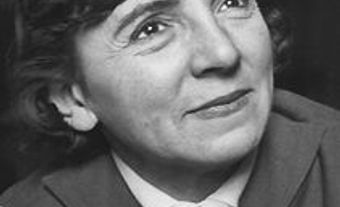Bourdon, Rosario
(Joseph Charles) Rosario Bourdon. Conductor, cellist, arranger, composer, record company executive, b Longueuil, near Montreal, 6 Mar 1885, naturalized US 1922, d New York 24 Apr 1961; premier prix cello (Ghent Cons) 1898, premier prix chamber music (Ghent Cons ) 1899, honorary D MUS (Montreal) 1944. He was a brother of Louis-Honoré Bourdon and a halfbrother of Jules Dubois. At nine he began to study the cello with J.-B. Dubois (later his stepfather). In 1897 he joined the class of Joseph Jacob at the Royal Cons of Ghent. He toured Europe as a child prodigy (billed as 'Rosario') before returning to Canada in November 1899 to give successful recitals in Montreal and other cities in Quebec. He was a member 1901-3 of the Cincinnati SO, and during that time returned to perform Servais's Le Désir with the Société symphonique de Québec (Quebec Symphony Orchestra) at the inauguration (31 Aug 1903) of the Auditorium de Québec. He was a member 1904-8 of the Philadelphia Orchestra before joining the St Paul (Minn) SO, serving 1908-11 as cellist and assistant conductor.
In 1909 he began recording for the Victor Talking Machine Co, and in 1911 he became the company's house cellist, accompanist and arranger. In 1920 he was appointed music director for Victor, a position he shared with Joseph Pasternak until 1931. He was the conductor for recordings by the Victor Concert Band, by the Victor Salon and Symphony Orchestras, by Sousa's Band, and by many Victor solo artists including Mary Garden. His recordings as conductor and cellist are listed in Roll Back the Years. He also played cello obbligatos on records made by such singers as Frances Alda, Enrico Caruso (1917, Sancta Maria by Jean-Baptiste Faure), Mabel Garrison, John McCormack, and Alma Gluck, and piano accompaniments for many Victor artists including his fellow cellist Victor Herbert. Some of these recordings have been re-issued on CD. In 1923 Bourdon began a parallel and equally successful career as music director on NBC radio; he was responsible for 'Cities Service Concerts' (1927-38) and other sponsored series. After leaving the Victor company in 1931 he worked with other recording organizations, including Brunswick, NBC, Thesaurus, and Muzak. He was also a pioneering conductor for the cinema, and participated in the production of Mickey Mouse and Laurel and Hardy films.
On 14 Jan 1935 Bourdon conducted the opening concert of the SCSM at Plateau Hall; the program included his arrangement of Lavallée's Le Papillon. Bourdon returned to conduct the orchestra on subsequent occasions, his programs including Saint-Saëns' Symphony No. 3 (the 'Organ' Symphony) and Poulenc's Concert champêtre, with Léo-Pol Morin as soloist, and also works by Beethoven, Tchaikovsky, and Wagner. For the critic Marcel Valois, 'the principal quality of this conductor lay in the relation - that is to say, the balance - between the cultivation and the gift. He was an exemplary musician because he had both authority and discrimination. There was no seeking after personal success, no desire to impose his tastes, only a constant wish to make the voices of the composers heard'. Three of Bourdon's compositions in light style were recorded: Is There a Santa Claus?, Ginger Snaps (T.B. Harms), and Danse bagatelle (Feist), the latter two by the Victor Novelty Orchestra. His Poème élégiaque for cello and orchestra was performed by Roland Leduc in 1943 at the CMM; more recently, it has been recorded by Alain Aubut and the Orchestre métropolitain.
In 1976 the University of Wyoming at Laramie acquired Bourdon's personal papers and documents, and an important collection of sound recordings - records and radio broadcasts.

 Share on Facebook
Share on Facebook Share on X
Share on X Share by Email
Share by Email Share on Google Classroom
Share on Google Classroom

